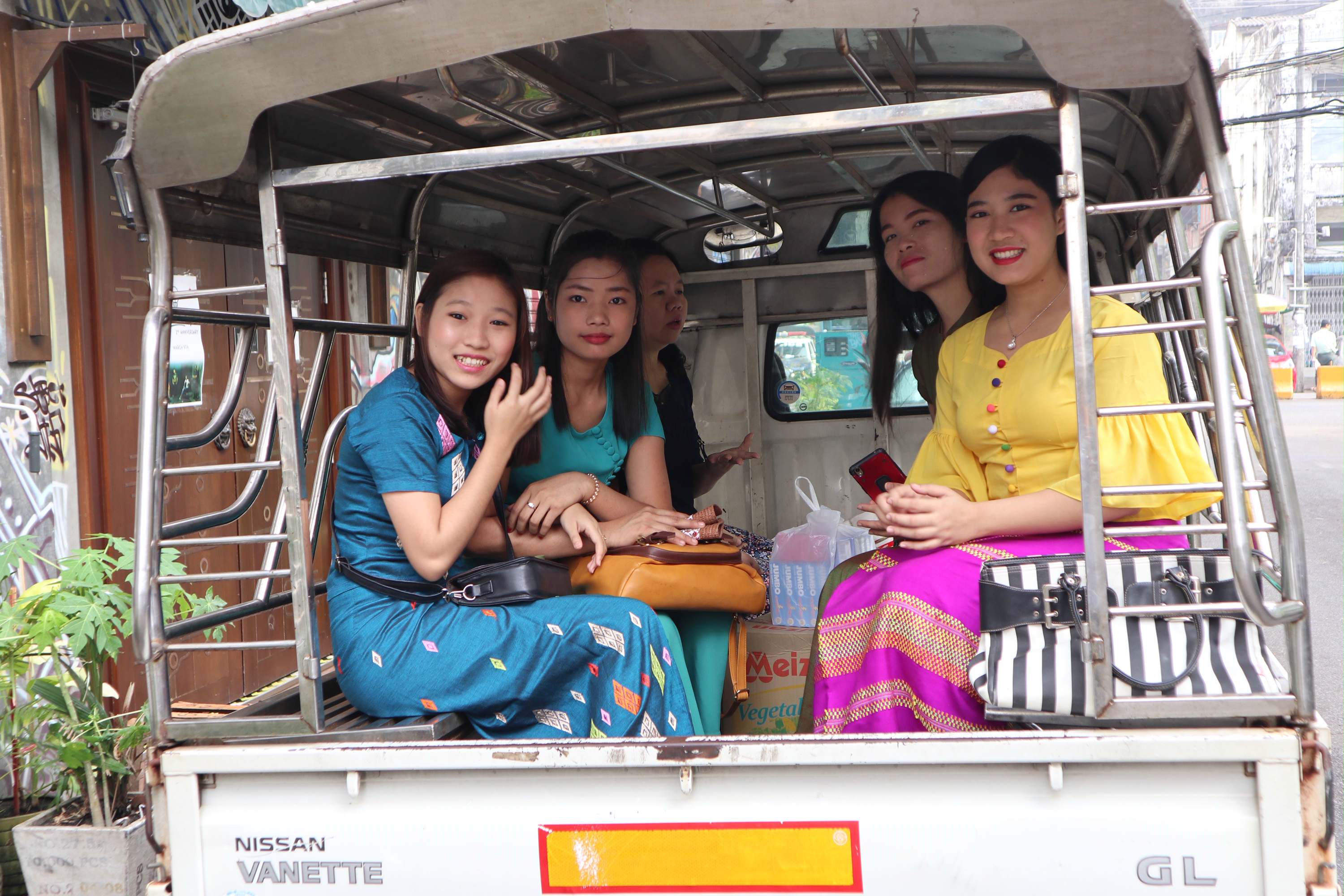Finland supports women’s and girls’ social inclusion in Myanmar — structural inequalities should be identified
Finland is supporting a project in Myanmar, which aims to dismantle gendered structural inequalities in society. The project is implemented by UN Women, and it is important in that it will help women to exert influence in the country’s democracy development and stabilisation. In Finland’s development policy, number one priority is strengthening of the rights and status of women and girls.

Progress towards equality is slow, but Myanmar has set milestones that it aims to achieve. Myanmar's Sustainable Development Plan, which is based on the UN’s global goals, emphasises equality in the attainment of wellbeing. The Government of Myanmar has adopted a separate plan for improving women’s position in the prevailing structures and practices of society (‘National Strategic Plan for the Advancement of Women’).
A good example of positive developments is the provision of primary and secondary education with equal access by girls and boys.
There is still a lot of work to be done because, for example, only about 10 per cent of MPs are women – at local level, women’s participation in politics is even less common.
One of the stumbling blocks is traditional attitudes. In Myanmar, women are often considered to be just wives or mothers – not competent citizens with a role in the economy or politics. Moreover, women are often victims of gender-based violence.
“In Myanmar, if anyone raises questions related to gendered inequality, a common response is that Myanmar doesn’t have any gender-based problems,” says Katja Hirvonen, Senior Specialist at Finland's Embassy in Yangon.
“The ultimate problem lies just here – discrimination against women and girls and structured inequality are not recognised.”
Information, skills and actors
Finland supports Myanmar in its efforts to achieve gender equality. In July, Finland and UN Women signed an agreement on a project entitled Strengthening Democracy in Myanmar through Gender Responsive Governance. The project aims to address gender equality at all levels of administration.
This means that structures that create or support inequality will be identified and replaced by practices that promote women’s inclusion in society. Another important matter is allocation of public appropriations: attention will be paid to budget planning to ensure that the use of funds would not support discriminatory structures.
The project will address equality and women's democratic participation in society from two angles. On the one hand, the project will help the Government of Myanmar to identify issues and shortcomings related to equality in public administration and to find solutions that promote equality. On the other hand, the project will help women's organisations in justifying their demands for increasing equality in legislation and for measures that would increase equality.

“Society's unequal structures do not change by increasing knowledge and skills only. Change requires also people who are active and speak up for equality,” Hirvonen notes.
“Finland supports women's organisations’ joint events and campaigns which give opportunities for diverse voices and women representing various minority groups to speak up. Decision-makers also attend these events and discussions to learn about various angles to questions relating to women's position and inequality.
The UN Women project will run for four years. In 2020–2023, Finland will channel EUR 4 million from its development cooperation appropriations to the project.
UN Women is one of Finland's key partners in the UN. In 2020, Finland holds the Presidency of the Bureau of the Executive Board of UN Women and is the biggest supporter of organisation.
Finland has an impressive history as a promoter of equality
Finland’s long history as a promoter of equality at home makes it a credible partner in equality work in other countries, including in Myanmar.
“Women’s strong participation in politics and exercise of influence in society in Finland motivates women in Myanmar to look for ways to shatter old practices and beliefs and to strengthen women’s opportunities for participation,” Hirvonen says.
Finland has also supported a project carried out by the United Nations Population Fund (UNFPA) in Myanmar, which promotes equality especially in conflict-affected areas by preventing and reducing both sexual violence and gender-based violence. Hundreds of thousands of women and girls have already benefitted from the programme.
Many projects implemented by civil society organisations (CSOs) that are supported by Finland are also working to strengthen equality in Myanmar. The Myanmar School of Politics, a project implemented by the Political Parties of Finland for Democracy (Demo Finland), supports active women politicians’ expertise at local level and helps their empowerment to positions of responsibility.
Women’s participation is important for the peace process
Equality work is a central part of Myanmar’s peaceful development. The country became independent in 1948 and, since then, conflicts between various groups have been ongoing all the time. Women's participation at all levels of society fosters the transition to democracy and gives direction to the peace process and its sustainability.
“Studies show that peace agreements are more sustainable when women are actively involved in the political negotiations,” Hirvonen notes.
For peace to be sustainable, many different viewpoints have to be reconciled. It is also important to dismantle such structures and practices that bolster gender-based inequality. They do not disappear automatically when violence subsides.
Women's active participation in the peace process and exercise of influence in society opens up opportunities for embracing new perspectives and themes into politics that build a more stable and sustainable society.
Susanna Kujanpää and Olli Moilanen
Susanna Kujanpää works as Project Assistant in the Department of America and Asia and Olli Moilanen is Content and Communications Specialist in the Department for Communications.
